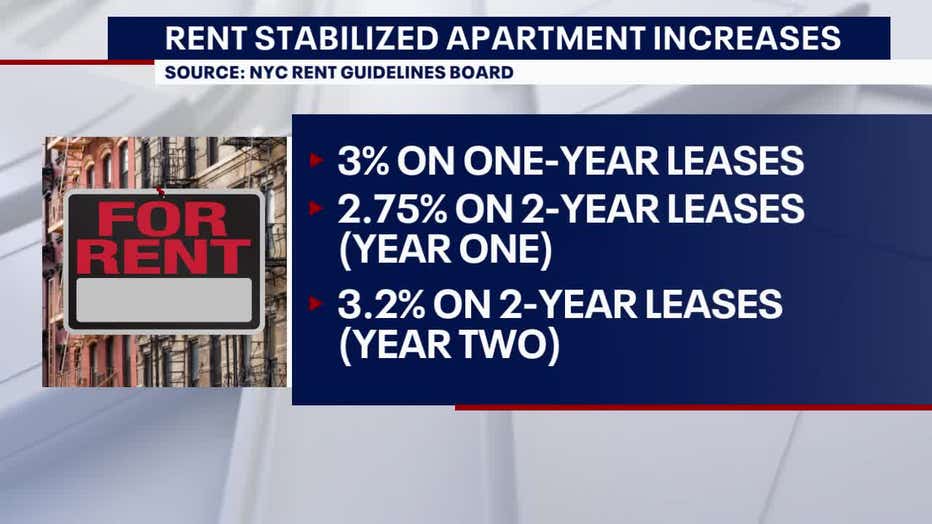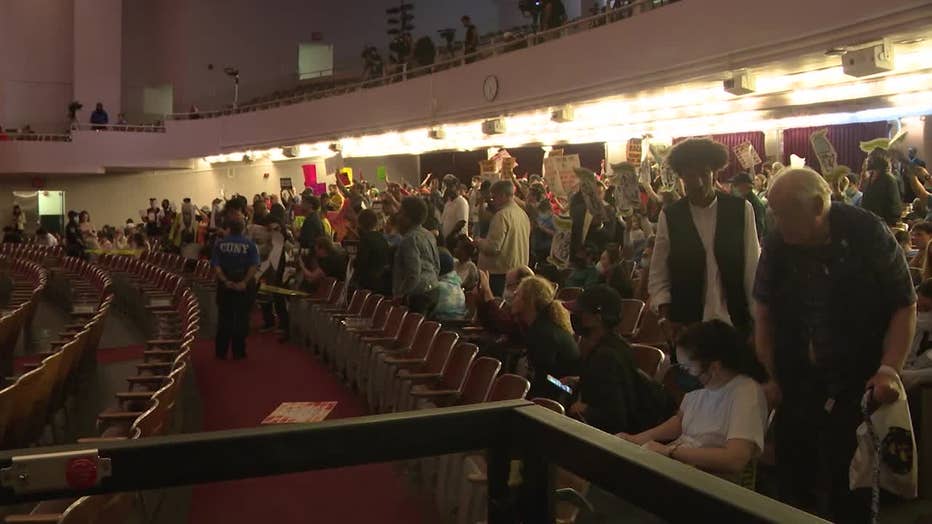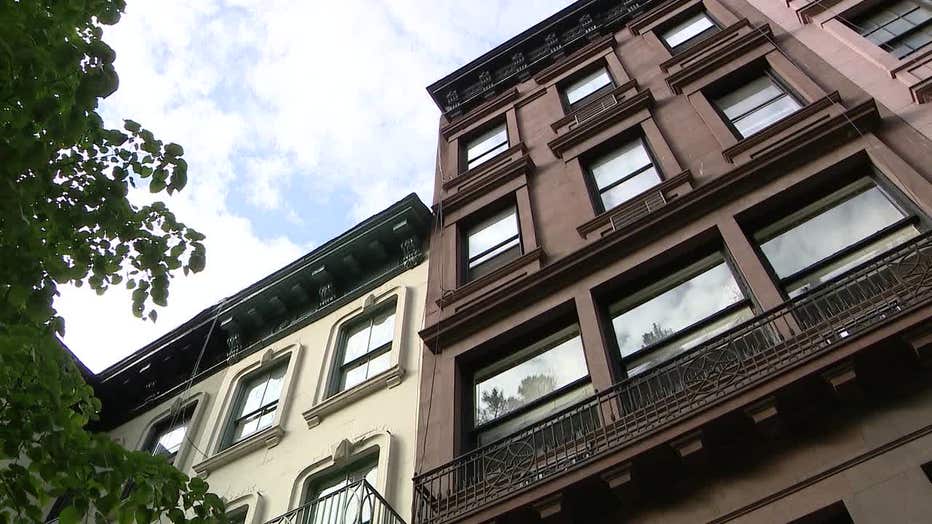NYC rent increase approved for rent-stabilized apartments: What to know
NEW YORK CITY - It’s official.
Millions of New Yorkers living in rent stabilized apartments will have to dish out more money each month after the Rent Guidelines Board pushed through controversial increases in a 5-4 vote.
The outcome of the vote was barely audible over the voices of disgruntled tenants chanting, blowing whistles and banging cow bells in the audience.

Rent increase
New York City's Rent Guidelines Board has made their final vote, approving rent hikes on 1 and 2-year leases for rent stabilized apartments in the city.
"They don’t care about human rights. They don’t care. They think they’re talking to dogs, trees and rubbish! They’re not concerned about us," one tenant told FOX 5 NY.
How much does rent increase?

- In the end, the board voted to raise rents on one-year leases by 3%.
- On two-year leases, rents will go up by 2.75% in the first year and 3.2% in the second year, averaging out to a 4.4% increase over the course of two years.
RELATED: NYC Rent Guidelines Board approves rent increase on 1 and 2-year leases
Mayor Eric Adams issued a statement shortly after Wednesday night’s meeting concluded.
"I want to thank the members of the Rent Guidelines Board for their critically important and extremely difficult work protecting tenants from unsustainable rent increases, while also ensuring small property owners have the necessary resources to maintain their buildings and preserve high-quality, affordable homes for New Yorkers," Adams said.
What are NYC tenants saying?

Tenants still coping with fallout from the pandemic, plus inflation, would beg to differ.
Last year, they dealt with a 3.25% increase on 1-year-leases, and a 5% increase on two-year leases – the highest hike for rent-stabilized apartments in nearly a decade.
What are NYC landlords saying?
Landlords, on the other hand, said they desperately need the money to combat rising property taxes, insurance, building repairs and other hefty costs across the board.

Michael Tobman, of the Rent Stabilization Association, called it a broken system.
"We’re going to do this, and we’re going to continue to make our case to the Rent Guidelines Board every year and in Albany and in City Hall until this process is reformed to the benefit of owners and tenants alike," Tobman explained.


